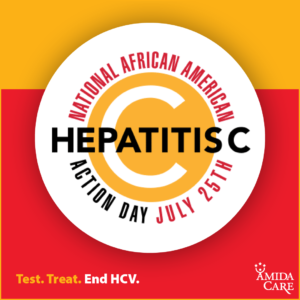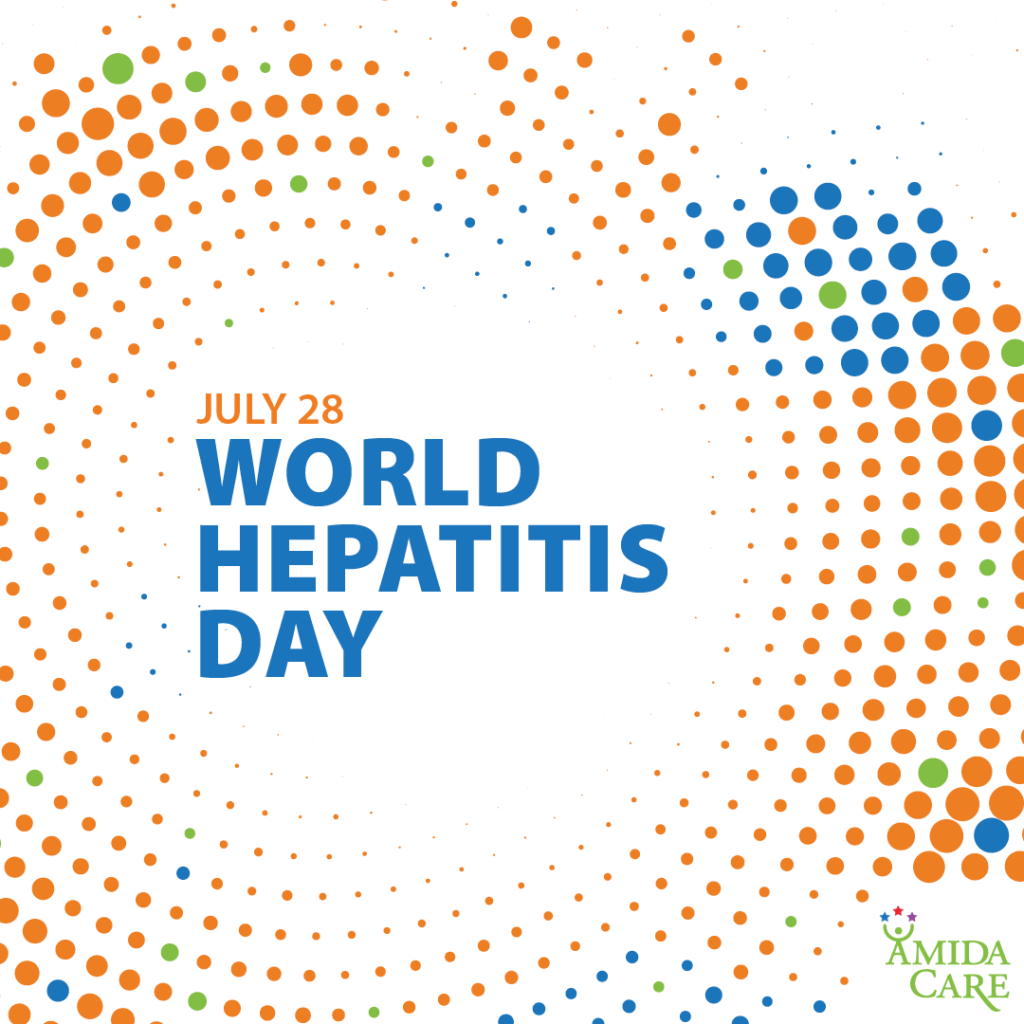Fighting Viral Hepatitis with Testing and Treatment

Keeping New Yorkers Free of Hepatitis C
Hepatitis C is a liver infection caused by the hepatitis C virus (HCV). Hepatitis C can be spread through blood-to-blood contact or when the blood from a person with the virus comes into contact with another person’s blood. HCV transmission can occur when individuals share needles or other equipment used to inject drugs, hormone or medication shots, tattoos and piercings, through sexual contact and perinatal transmission.
HCV infections cause long-term, chronic conditions that can result in serious health problems, including liver cancer and cirrhosis. Because there are often no symptoms, many of those with HCV are unaware they are infected. However, there is a cure for hep C, and it’s crucial to get tested so that treatment can begin.
National African American Hepatitis C Action Day
July 25 is National African American Hepatitis C Action Day (NAAHCAD), a community mobilization initiative aimed at reducing the high incidence of HCV infection by drawing attention to this health disparity by promoting education, testing, and treatment.
African Americans comprise approximately 11% of the U.S. population, but represent 25% of people with chronic hepatitis C infections. Within the African American community, individuals aged 20 to 59 are 1.6 times more likely to be chronically infected with hepatitis C compared to other populations and those aged 60 and older are 10 times more likely to be chronically infected with hepatitis C compared to other groups.
There is a Cure for Hepatitis C
Though there is no vaccine for HCV but treatment with antiviral medications can cure it. New treatments are very effective and have few side effects.
People living with HIV are placed at higher risk to be affected by HCV. Roughly 25% of people living with HIV are also co-infected with HCV. HCV progresses faster and causes more liver-related health problems in individuals living with HIV. Many Amida Care members living with HIV also test positive for HCV. Pharmacy care management is especially beneficial for those who are co-infected by providing specialized, coordinated care to ensure that members get the medications and level of support they need. Amida Care pharmacists work closely with members to ensure that there are no adverse side effects or potential negative interactions of multiple prescriptions. These pharmacists also help streamline the administrative processes for providers. Amida Care has helped over 1,400 members access treatment for HCV, with a 95% cure rate. Amida Care’s pharmacy team works to educate members undergoing HCV treatment that re-infection is still possible even if a member has been cured of HCV.
World Hepatitis Day
July 28 is World Hepatitis Day, a time to raise awareness about the different forms of hepatitis and their global impact, and to emphasize the importance of prevention, diagnosis, and treatment. Almost 300 million people worldwide are unaware they are living with viral hepatitis.
Hepatitis B (HBV) is the second most prevalent form of hepatitis (after hepatitis C) in the U.S., especially among Asian Americans and Pacific Islanders; although they make up less than 5% of the U.S. population, they account for more than half of the 862,000 Americans living with chronic hepatitis B. Left untreated, it can lead to liver cancer, a leading cause of cancer deaths among Asian Americans. Unlike hepatitis C, however, there is a vaccine that can prevent its transmission, as well as treatment.
Latinx people are also disproportionately impacted by hepatitis. Statistics from the Office of Minority Health show that Latinx people are 60% more likely to die from viral hepatitis than whites. Chronic liver disease is a leading cause of death among Latinx people in the U.S. It’s the third leading cause of death among those aged 55 to 64.
Get tested and get vaccinated! Hepatitis C can be cured, and hepatitis B can be prevented by a vaccine or treated with medication.
Resources
• National Black Leadership Commission on Health (NBLCH)
• Hep Free NYC
• Coronavirus + Hepatitis Community Resources
• Project Inspire: NYC Hep C Care Coordination Program for Medicaid and Medicare Recipients
• Information from the CDC about hepatitis C
• Information from the CDC about hepatitis B
• Information from the CDC about hepatitis A
• World Hepatitis Day

